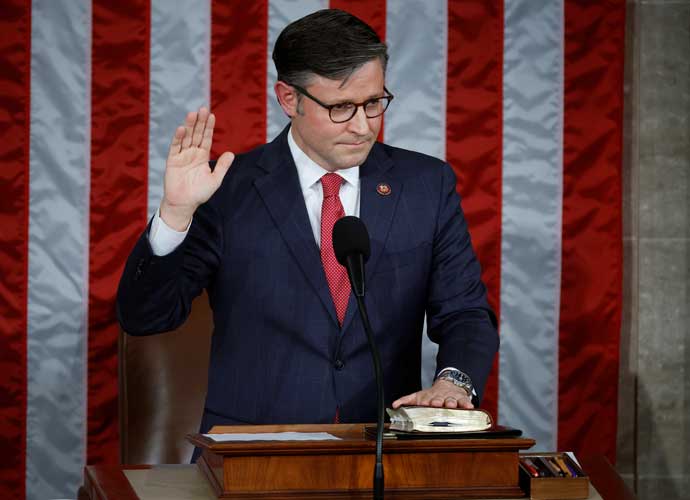House Republican Face Dwindling Majority As Fights With Democrats Heat Up
A fast-approaching government shutdown is exposing the shaky grip the Republicans hold on their majority in the House of Representatives.
Last month, both chambers of Congress passed an emergency funding extension. The vote in the House was 314 to 108. The extension sets up new funding deadlines of March 1 and 8.
The extension received significant pushback against House Speaker Mike Johnson from the far-right faction of his party.
The Republican vote was split at near 50/50, with conservatives demanding deeper spending cuts. This signals a party divide that could come back to haunt the Republicans when it comes time for party-line issues.
Subscribe to our free weekly newsletter!
A week of political news in your in-box.
We find the news you need to know, so you don't have to.
Infighting isn’t the only challenge to the Republican House majority. Three members of the House Republicans have left the governing body since October.
There was the unceremonious departure of Rep. George Santos (R-New York), who was expelled from the House for multiple ethics violations. Former Speaker Kevin McCarthy (R-California) was voted out of his position, in a move spearheaded by Rep. Matt Gaetz (R-Florida), after letting a controversial spending bill pass. Rep. Bill Johnson (R-Ohio) stepped down from his seat to take the job of president at Youngstown State University. His resignation was effective January 21.
These losses leave the House split between 219 Republicans to 213 Democrats, with 3 vacancies. This means Republicans would have to present a unified front on party-line votes, something they haven’t been able to achieve lately. Illness, accidents and even travel issues have presented a problem for the Republicans in recent days.
Rep. Harold Rodgers (R-Kentucky) is recovering from a car crash, and Rep. Steve Scalise (R-Louisiana) is out for a month receiving cancer treatment.
Former House Speaker Nancy Pelosi (D-California) had instituted remote proxy voting during the Covid-19 pandemic, but Republicans reversed this when they gained their majority.
Democrats are well aware of the opportunity these slim margins present. Rep. Steny Hoyer (D-Maryland) noted that Republicans “are not the majority party in this House.” And if the stars align, a winter storm cancels some flights, or traffic is just too bad in D.C. and the Democrats had the majority on the House floor, they might “elect a speaker.”
Get the most-revealing celebrity conversations with the uInterview podcast!








Leave a comment